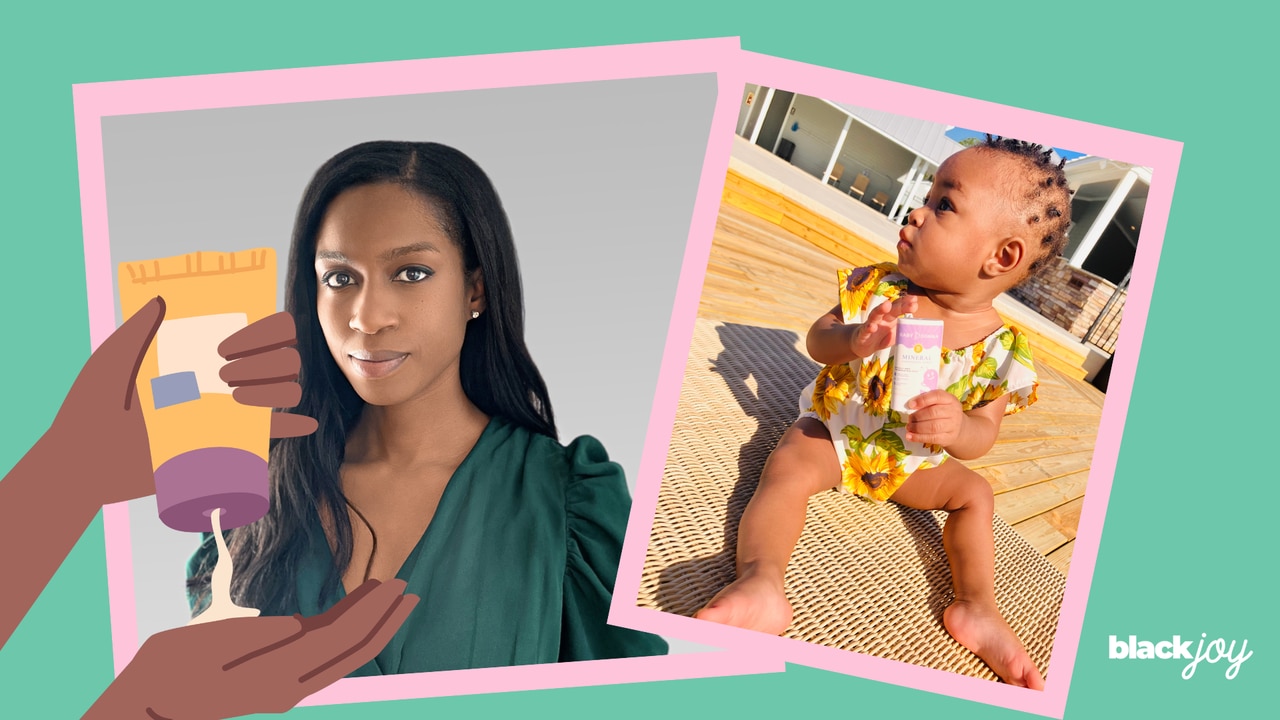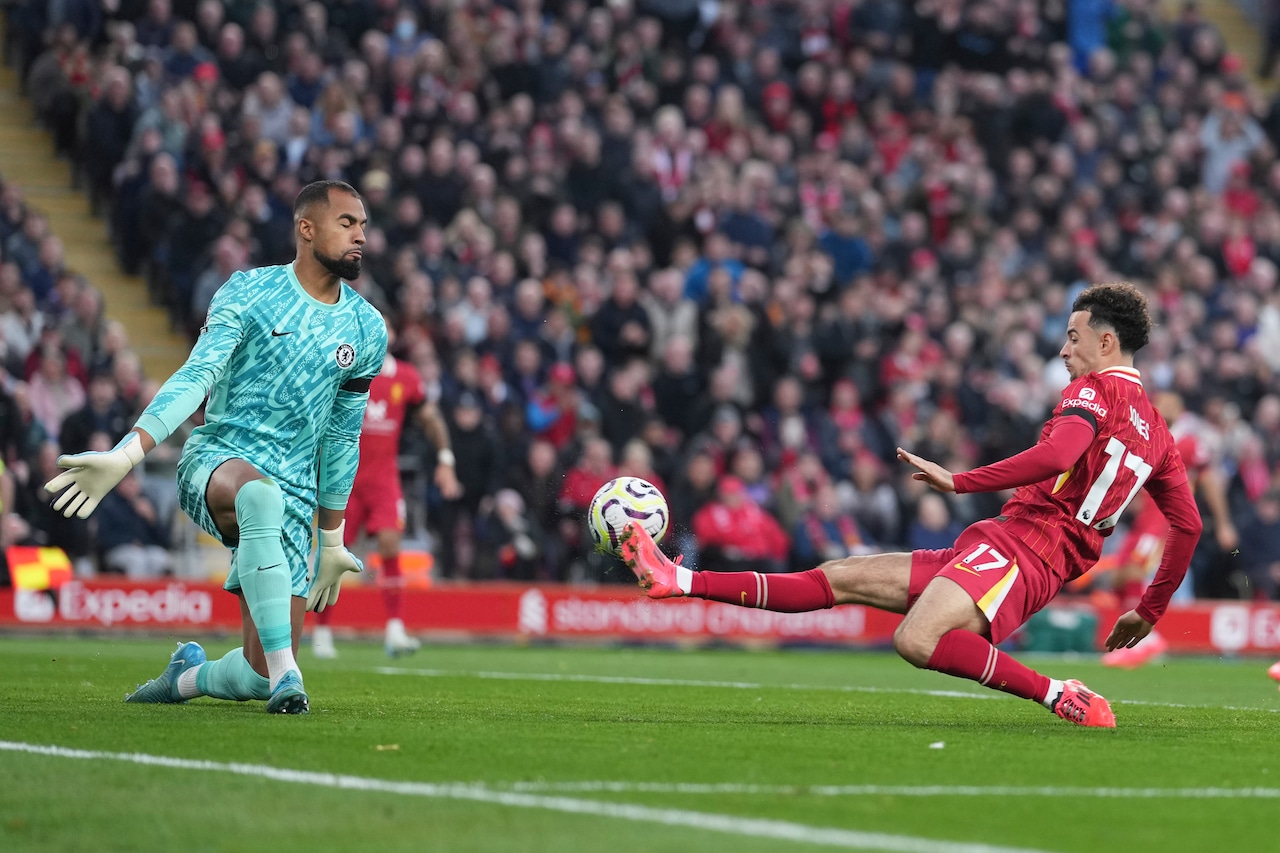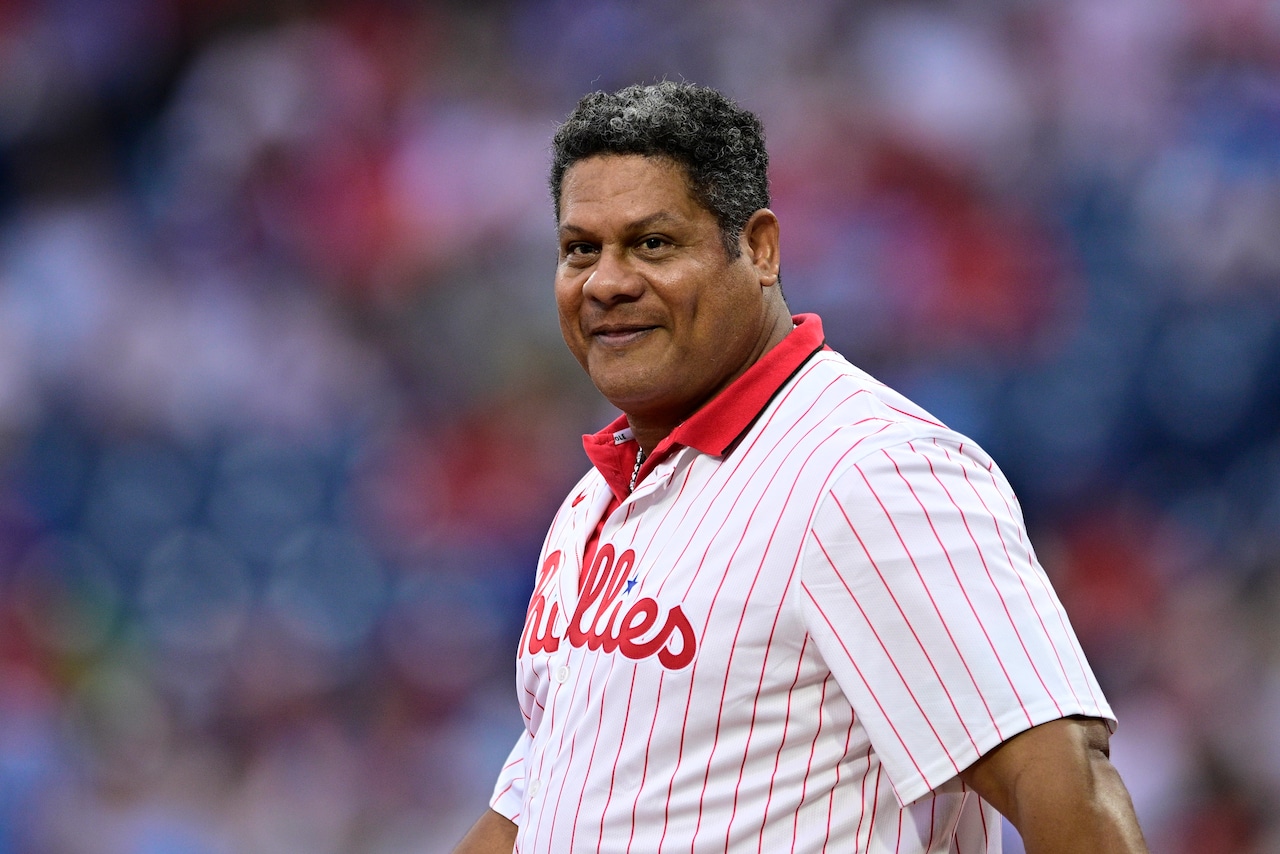
Way before Dalaise Hickey founded the first and only Black-owned mineral sunscreen formulated for melanated babies, she was adjusting to a beauty industry that only catered to fairer skin.
Like many Black people in the 80s, she just settled for wearing foundations that were either lighter or darker than her skin tone. Sometimes she would blend a few shades together to create a foundation that matched her melanin glow. Since she didn’t wear makeup a lot back then, she didn’t think much of it.
But those feelings hit differently after she became a Connecticut mom of two. In 2021, she was struggling to find sunscreen for her then six-month-old daughter Penelope who has eczema-prone skin. Hickey knew she wanted to stay away from chemical sunscreens, which contain questionable ingredients. But the mineral sunscreen she stumbled upon left a ghostly-white cast even on her light-skinned daughter.
Watching another generation of Black and brown kids struggle to get their skincare needs met frustrated Hickey. And according to research, the feeling was mutual among Black consumers who don’t feel properly represented in the skin, hair and makeup aisles. While Black-owned brands like Fenty and Black Girl Sunscreen are getting on shelves, Black-owned beauty brands only make up about two percent of the industry.
Hickey said corporations are willing to put more Black faces in their ads and products, but aren’t willing to research whether their products are safe for Black skin. So with the help of chemists, a market researcher and a Black woman mentor, Hickey decided to fill the void by developing her own sunscreen called Baby Donna in 2022.
“These are companies that are not owned by our own people that are now taking in the fact that we are purchasing sunscreen and trying to target us, but are they really even developing these products for us?” Hickey said.
Baby Donna is a sheer, broad spectrum sunscreen, meaning it protects the skin from the ultraviolet A rays (UVA) that cause aging and ultraviolet B rays (UVB) that causes skin burning. FDA-tested and dermatologist-approved brand is SPF 35 and is water resistant for 80 minutes.
Hickey conducted extra testing to make sure she met the needs of melanated babies by creating a plant-derived sunscreen that would blend better on darker skin tones and was gentle on sensitive skin. The National Eczema Association states that eczema doesn’t discriminate against skin color, and that Black and Hispanic children have a more severe form of the skin condition than white children. Despite this fact, Hickey and her peers were shocked that she is the first to create a brand like this specially for kids of color.
“Since I’ve launched, I’ve had a lot of not just Black people, but Latin people and customers who are Indian who are also like, ‘Yeah, I know this didn’t exist.’ We just accepted that we were going to have this cast,” Hickey said. “And I don’t know what that says for us as a people, like if we just got used to having less or just got used to people not really creating things for us.”
Being left out of the conversation of sunscreens can be a dangerous game for those with melanated skin. Darker skin doesn’t make one completely immune to ultraviolet rays, which is the main culprit for sun cancer. White skin may be 70 percent more likely to get skin cancer, but dermatologists in Detroit learned that Black patients were three times more likely to die from Melanoma than white people. Researchers found that Black patients were being diagnosed during the later-stages of cancer because doctors have less experience diagnosing skin conditions on darker skin.
Which is why Hickey finds herself on two main battlegrounds when it comes to proper Black skincare: one where she wrestles with the lack of diversity and another where she is battling the idea that Black people don’t need sunscreen. It’s a myth Hickey grew up with and one she still finds herself demystifying often. While melanin does provide more protection from the sun than white skin, it doesn’t provide complete protection.
Hickey has noticed more awareness on sunscreen usage in the Black community thanks to education by Black-owned brands like Black Girl Sunscreen and social media influencers who are educating their audience about the importance of using sunscreen on the face to prevent hyperpigmentation. Hickey’s own journey of routinely incorporating sunscreen started as a form of acne prevention. It may sound like a beauty tip, but sunscreen can help prevent skin irritation on the face. It benefits the overall message of the importance of sunscreen usage on Black and brown skin.
Baby Donna gives parents the opportunity to start a sunscreen routine early in their lives, Hickey said. Parents should also add more protection by making sure their child’s head is covered and to reapply the sunscreen every two hours. As for adults, no matter if you’re basking in the sunshine, dealing with overcast skies or chilling inside, sunscreen should be a regular part of your routine. Hickey said sunscreen with a SPF of 30 should be enough for darker shades because it blocks 97 percent of UVB rays, which is one percent less than sunscreens with SPF 50.
“I wear sunscreen every day, even if I’m inside all day,” Hickey said. “Unless you are in a windowless box all day, there is still light coming in. So it’s better to be safe than sorry.”
Creating a sunscreen brand isn’t the only way Hickey is helping out the kids. Baby Donna donates five percent of its proceeds to nonprofits that assist youth caught in the throes of both the foster care and the juvenile justice systems. During her more than 15 years as a social worker, Hickey witnessed how family courts and the legal system play in the face of Black families. Black families are overrepresented in child welfare cases due to racism and are often left with little to no resources to better their situations, Hickey said.
“When it came to the few white families that came through the family court system, their children don’t get taken from them. Systems will work with them to keep them in the house,” she said. “And then with juvenile delinquent cases, a lot of it is poverty. It’s not even really safety issues. Families are coming in because they didn’t have food or a home.”
When it comes to these cases,most judges like to see teens connected with a mentor or have a job, but Hickey said a lot of nonprofits don’t have the fundraising capacity to help so many youth at once.
Baby Donna has also sponsored a few beehives with the Huneebee Project. The nonprofit, started by a clinical social worker and beekeeper, gives youth an opportunity to heal their trauma through the therapeutic benefits of beekeeping. Hickey has also donated sunscreen sticks to the Rare O Project, which helps teen moms.
Hickey believes Black businesses can play a role in disintegrating the systems tearing Black and brown families apart.
“Larger companies are not looking at how to help our communities. So we really have to be the leaders in showing them that this is an important mission for a company and ensuring our communities that they are important to us,” Hickey said. “I think what happens is, even when companies do try and give back, they come in and say, ‘OK, this is how we’re gonna help you.’ What I really want to try and do is to align myself with communities. So Allow them to be the voice and say what can be helpful to them.”
This adds to the social justice mission of Baby Donna. Whether she’s in the skincare industry or in the family court system, Hickey wants to make her message loud and clear: “We matter. And our children matter.”






